This is the 6th edition of Inverted Blackness, a photoblog documenting Africans living in America.
LUCIA: “Looking back at my experience when I first came to America, I think I can understand why I decided to dig deeper into my own culture and community. When I first came, it was hard for me to make friends. I was bullied a lot for my accent, for the way I looked, the way I dressed, and the way I wore my hair. I could say that American kids were not so nice to me, and some of the Nigerian kids too. At the time, being African was a ground for being bullied, so Nigerian kids around me tried to be as American as possible. Nobody wanted to identify as African. In high school, I remember people would be like: ‘Oh, I’m not Nigerian, my parents are Africans. I’m not African, my parents are African.’ People would legitimately tell you to your face. So, I started connecting with my African culture and identity out of survival, out of the feeling of not being isolated. Because I felt alienated a lot when I first came here, at least for the first two or three years. But things changed when Nigerian music like Afrobeats began to blow up. So, everywhere, the music that’s now being listened to is African. You turn on the radio and you hear Wizkid, or you enter the bank and you hear P-Square. This was in Houston, Texas, where I grew up. Before then, we didn’t hear a lot of that stuff outside of church, or birthday parties, or people’s graduations. We didn’t hear a lot of our music or culture amongst non-Nigerians or non-Africans. But when Afrobeats blew up, being African suddenly became cool.”
“Growing up in Nigeria, in the beginning, we spoke a lot of English. My parents did not enforce it because everyone around us spoke English. The only thing my mom enforced was that we must not speak Pidgin English, because she was worried it would affect our abilities to speak proper English. Around the time my parents started contemplating bringing us to America, my mom began to worry that we didn’t know how to speak Yorùbá very well. My mom wanted us to get ready for this new life ahead of us. I think she was afraid we wouldn’t know who we were after getting to America. So, she started enforcing Yorùbá at home. She would speak to us in Yorùbá and ensured we responded in Yorùbá. To up the ante, she hired a teacher to come to our house to teach us Yorùbá after school. The teacher made us read Yorùbá and stuff. Before bedtime, my mom would also have us read Yorùbá poetry. She had like little poetry books and storybooks written by Yorùbá poets and writers. She told us folktales too. I remember we used to ask her to tell us an Ìjàpá story every night. I think my mom knew about three hundred Ìjàpá stories.”
“Before we came to America, my mom had been telling us that once we got here, we would only be speaking in Yorùbá. She didn’t want a situation whereby she would not be able to reprimand us. So, in America, Yorùbá became like her language of caution to us. When we returned from school and tried speaking to her in English, she would be like, ‘Hey, who are you speaking English to? Ó yá, backtrack, start all over. I don’t understand what you’re saying.’ Even now, as an adult who speaks Yorùbá fluently, my mom still doesn’t like us speaking to her in English.”
Lucia grew up in Nigeria and relocated to the United States with her family when she was ten. She is currently studying for an MFA in Acting at the Trinity Repertory Company at Brown University.
Thank you for reading Inverted Blackness! This photoblog publishes stories and photographs of Africans living in America, offering a glimpse into the African diasporic experience in the United States.
If this newsletter is shared with you, kindly consider subscribing and sharing it with others. Please, whitelist the email so you never miss anything from us. Thank you!

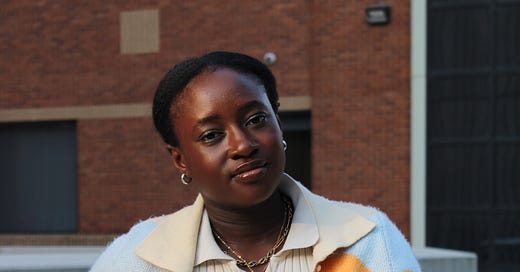




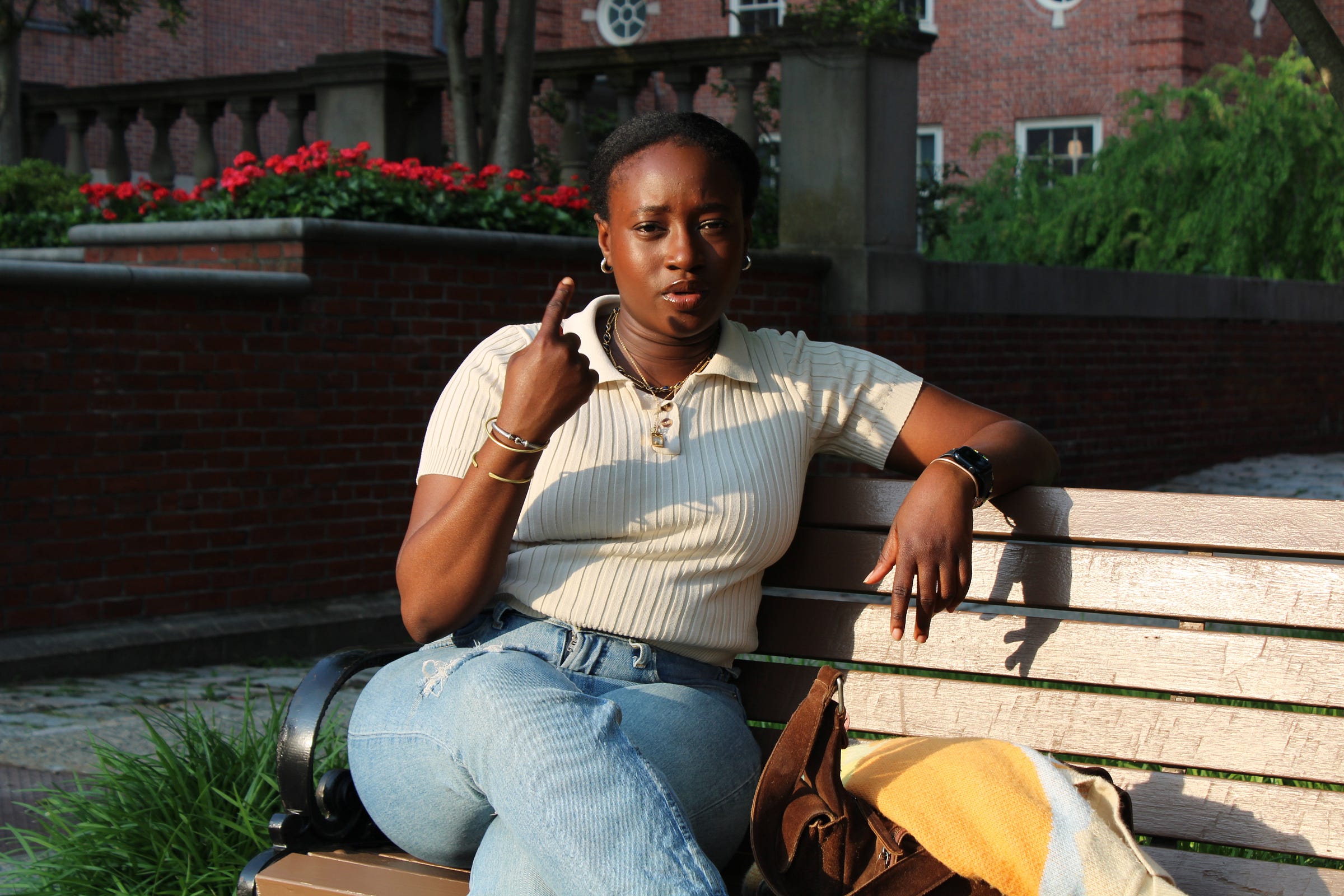
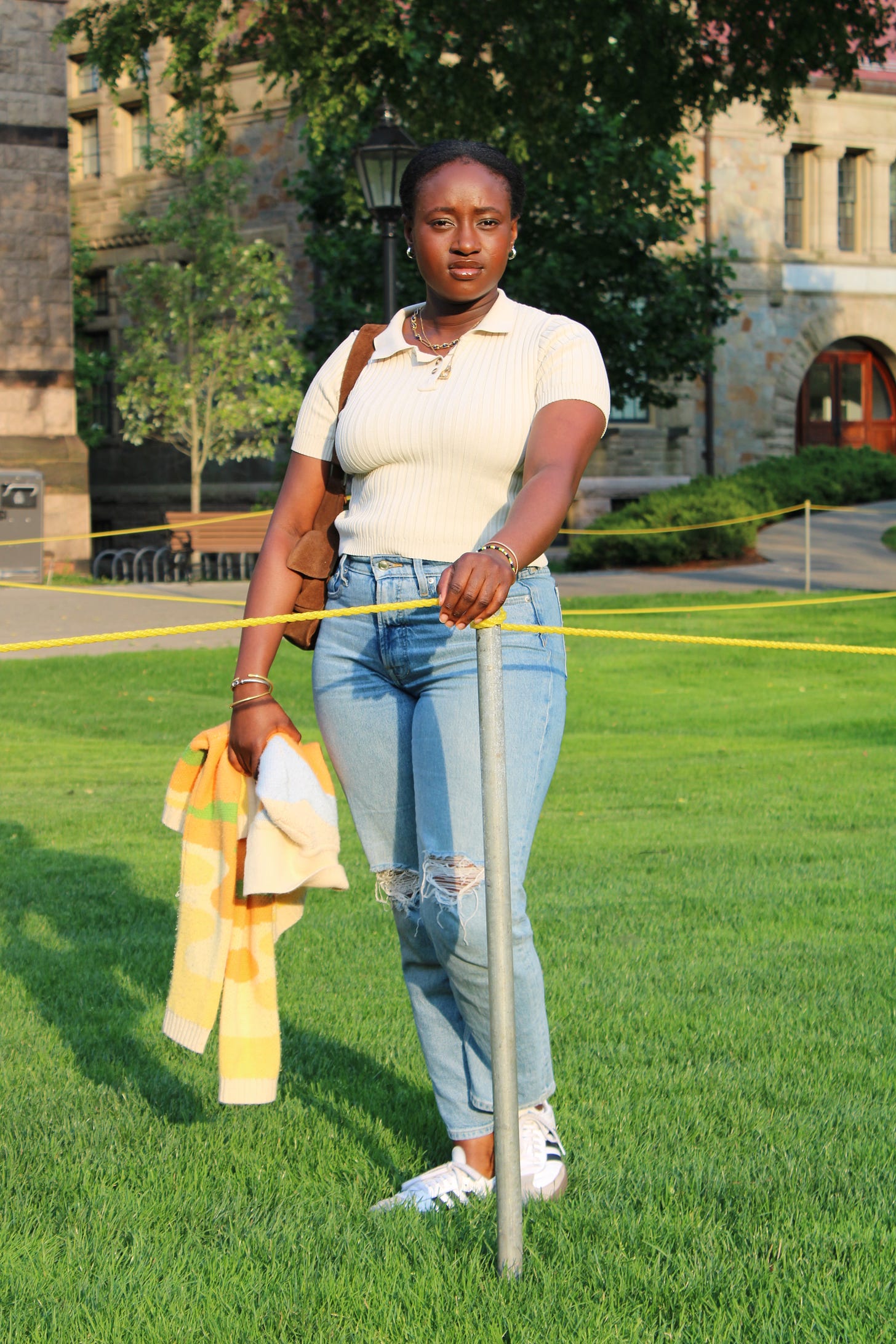
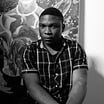
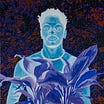
😊👏🏽
👏❤️